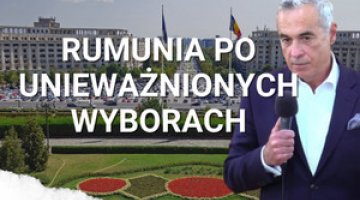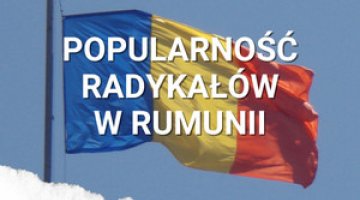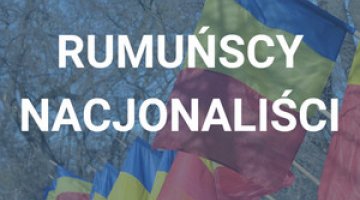Romania: Constitutional Court annuls the presidential election
On 6 December, Romania’s Constitutional Court decided not to recognise the results of the first round of the presidential election, which took place on 24 November, and ordered the entire electoral process to be repeated. In its rationale for the ruling, the court stated that the winner of the first round, far-right candidate Călin Georgescu, had engaged in manipulation by employing “non-transparent and election code-violating digital technologies, as well as artificial intelligence, during his campaign activities”. According to the court, this conduct resulted in the violation of the principle of equal opportunities for all presidential candidates. The justices also emphasised the lack of transparency in the funding of Georgescu’s campaign, despite his claims that no money had been spent for this purpose.
The court’s decision came under criticism not only from the first-round victor, Călin Georgescu, but also from George Simion, leader of the far-right, Eurosceptic Alliance for the Union of Romanians (AUR), and Elena Lasconi, head of the liberal, centre-right Save Romania Union (USR), who was set to face Georgescu in the runoff on 8 December. Lasconi described the Constitutional Court’s decision as an act of “trampling on democracy”, viewing it as an attempt to prevent her from potentially becoming Romania’s president. Until a new head of state is elected, the incumbent president, Klaus Iohannis, whose term was formally set to expire on 21 December, will remain in office with an extended mandate.
Georgescu, a relatively unknown politician with an average level of support in polls of just 5%, Achieved a surprising victory in the first round of the presidential election. This raised serious concerns regarding unfair campaigning and external interference in the electoral process. The Constitutional Court’s ruling, based on vague evidence and procedurally doubtful, is likely to further erode the Romanian public’s already low confidence in democratic institutions. Additionally, it will serve as propaganda fodder for radical, anti-establishment, and Eurosceptic parties, which have been gaining popularity in Romania in recent years.
Commentary
- This unprecedented decision was made on the basis of reports compiled by Romanian intelligence, which had been declassified two days earlier at the request of President Iohannis. These reports indicated that Georgescu’s social media campaign was managed by companies registered in various countries, which operated numerous fake accounts and bots (reportedly there were around 25,000 such accounts). Alongside this, the intelligence services argued that the extraordinary reach and level of coordination of these promotional activities suggested the involvement of a “state actor”. Although the report did not explicitly name the state, it indirectly pointed to Russia. The declassified documents also indicated that, during the election, public institutions responsible for the electoral process were subjected to massive cyberattacks, allegedly perpetrated by Russian hackers. Moreover, they revealed that Georgescu’s campaign was financed by Bogdan Peșchir, an IT company owner, who invested around €1 million in promoting Georgescu on TikTok.
- The Constitutional Court’s ruling is highly contentious, with commentators challenging its legality. This is because it invalidates the court’s decision of 2 December, which recognised the outcome of the first round of the election. The annulment came very late, just two days before the runoff, by which time as many as 37,000 votes had already been cast in overseas polling stations. Moreover, it was made on the basis of appeals submitted after the relevant deadline. The court has also faced criticism for allegedly acting on political bias, when issuing its ruling. Elena Lasconi and her supporters have suggested that the decision was not only aimed at eliminating Georgescu from the electoral race but also at enabling the largest party in the Romanian parliament, the Social Democratic Party (PSD), to promote its presidential candidate. In the first round, the PSD’s representative, Prime Minister Marcel Ciolacu, placed third, having obtained a result just 0.02% lower than Lasconi’s. So far, the court’s decision has not led to public protests. This is partly due to Georgescu’s lack of a political support base (no entity capable of organising such protests on his behalf) and the unique profile of his electorate. Many of his supporters voted for him on an ad hoc basis, inspired by his social media campaign and do not constitute a cohesive or mobilised group.
- The annulment of the presidential election will exacerbate Romania’s recently growing public disillusionment with mainstream parties and strengthen radical and anti-establishment right-wing parties. Georgescu is unlikely to be allowed to participate in the re-run of the election, which is expected to take place no earlier than March 2025 (he is likely to face charges for his alleged involvement in electoral manipulation). Some of Georgescu’s voters are expected to support the AUR’s leader, George Simion, potentially enabling him to advance to the second round. Simion’s rivals in the re-run could include Elena Lasconi, who is certain to run again, as well as a candidate endorsed by the PSD (it remains unclear whether this candidate will be Marcel Ciolacu). Another potential contender is Ilie Bolojan, the current leader of the National Liberal Party (PNL), which has co-governed Romania with the PSD.




